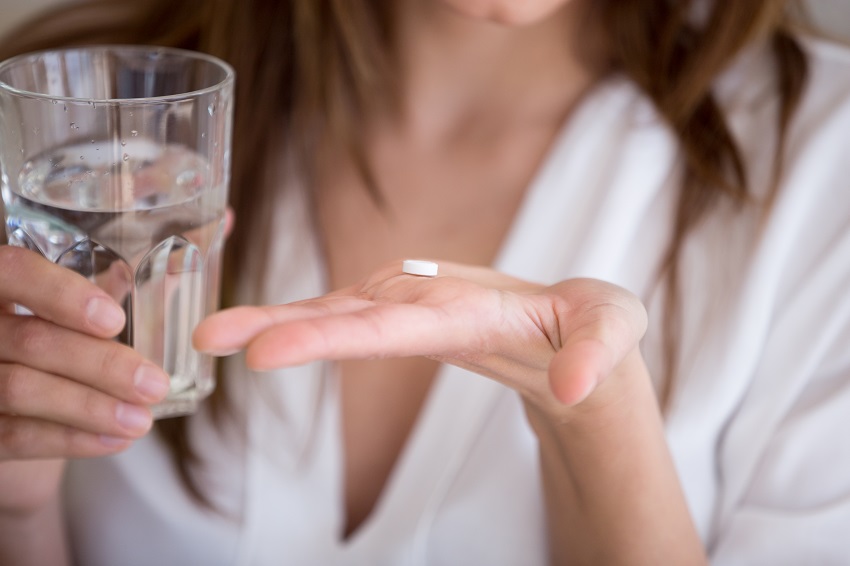Korpela, K., Salonen, A., Virta, L. J., Kekkonen, R. A., Forslund, K., Bork, P., & De Vos, W. M.
Intestinal microbiome is related to lifetime antibiotic use in Finnish pre-school children. Nature communications, 7, 10410 (2016). Doi: 10.1038/ncomms10410
Rashid, M. U., Zaura, E., Buijs, M. J., Keijser, B. J., Crielaard, W., Nord, C. E., & Weintraub, A.
Determining the long-term effect of antibiotic administration on the human normal intestinal microbiota using culture and pyrosequencing methods. Clinical infectious diseases, 60(suppl_2), S77-S84 (2015). Doi: 10.1093/cid/civ137
Zaura, E., Brandt, B. W., de Mattos, M. J. T., Buijs, M. J., Caspers, M. P., Rashid, M. U., ... & Coates, A. R.
Same exposure but two radically different responses to antibiotics: resilience of the salivary microbiome versus long-term microbial shifts in feces. MBio, 6(6), e01693-15 (2015). Doi: 10.1128/mBio.01693-15
Panda, S., Casellas, F., Vivancos, J. L., Cors, M. G., Santiago, A., Cuenca, S., ... & Manichanh, C.
Short-term effect of antibiotics on human gut microbiota. PloS one, 9(4), e95476 (2014). Doi: 10.1371/journal.pone.0095476
Dethlefsen, L., & Relman, D. A.
Incomplete recovery and individualized responses of the human distal gut microbiota to repeated antibiotic perturbation. Proceedings of the National Academy of Sciences, 108(Supplement 1), 4554-4561 (2011). Doi: 10.1073/pnas.1000087107
Stewardson, A. J., Gaïa, N., Francois, P., Malhotra-Kumar, S., Delemont, C., de Tejada, B. M., ... & Groups, W. S.
Collateral damage from oral ciprofloxacin versus nitrofurantoin in outpatients with urinary tract infections: a culture-free analysis of gut microbiota. Clinical Microbiology and Infection, 21(4), 344-e1 (2015). Doi: 10.1016/j.cmi.2014.11.016
Raymond, F., Ouameur, A. A., Déraspe, M., Iqbal, N., Gingras, H., Dridi, B., ... & Frenette, J.
The initial state of the human gut microbiome determines its reshaping by antibiotics. The ISME journal, 10(3), 707 (2016). Doi: 10.1038/ismej.2015.148
Vogt, S. L., & Finlay, B. B.
Gut microbiota-mediated protection against diarrheal infections. Journal of travel medicine, 24(suppl_1), S39-S43 (2017). Doi: 10.1093/jtm/taw086
Britton, R. A., & Young, V. B.
Role of the intestinal microbiota in resistance to colonization by Clostridium difficile. Gastroenterology, 146(6), 1547-1553 (2014). Doi: 10.1053/j.gastro.2014.01.059
Cox, L. M., & Blaser, M. J.
Antibiotics in early life and obesity. Nature Reviews Endocrinology, 11(3), 182 (2015). Doi: 10.1038/nrendo.2014.210
McDonald, L. C.
Effects of short-and long-course antibiotics on the lower intestinal microbiome as they relate to traveller’s diarrhea. Journal of travel medicine, 24(suppl_1), S35-S38 (2017). Doi: 10.1093/jtm/taw084
Becattini, S., Taur, Y., & Pamer, E. G.
Antibiotic-induced changes in the intestinal microbiota and disease. Trends in molecular medicine, 22(6), 458-478 (2016). Doi: 10.1016/j.molmed.2016.04.003
Jakobsson, H. E., Jernberg, C., Andersson, A. F., Sjölund-Karlsson, M., Jansson, J. K., & Engstrand, L.
Short-term antibiotic treatment has differing long-term impacts on the human throat and gut microbiome. PloS one, 5(3), e9836 (2010). Doi: 10.1371/journal.pone.0009836
Jernberg, C., Löfmark, S., Edlund, C., & Jansson, J. K.
Long-term ecological impacts of antibiotic administration on the human intestinal microbiota. The ISME journal, 1(1), 56 (2007). Doi: 10.1038/ismej.2007.3
Dethlefsen, L., Huse, S., Sogin, M. L., & Relman, D. A.
The pervasive effects of an antibiotic on the human gut microbiota, as revealed by deep 16S rRNA sequencing. PLoS biology, 6(11), e280 (2008). Doi: 10.1371/journal.pbio.0060280
Löfmark, S., Jernberg, C., Jansson, J. K., & Edlund, C.
Clindamycin-induced enrichment and long-term persistence of resistant Bacteroides spp. and resistance genes. Journal of Antimicrobial Chemotherapy, 58(6), 1160-1167 (2006). Doi: 10.1093/jac/dkl420
Jakobsson, H., Wreiber, K., Fall, K., Fjelstad, B., Nyrén, O., & Engstrand, L.
Macrolide resistance in the normal microbiota after Helicobacter pylori treatment. Scandinavian journal of infectious diseases, 39(9), 757-763 (2007). Doi: 10.1080/00365540701299608
Johnston, B. C., Ma, S. S., Goldenberg, J. Z., Thorlund, K., Vandvik, P. O., Loeb, M., & Guyatt, G. H.
Probiotics for the prevention of Clostridium difficile–associated diarrhea: a systematic review and meta-analysis. Annals of internal medicine, 157(12), 878-888 (2012). Doi: 10.7326/0003-4819-157-12-201212180-00563
Hempel, S., Newberry, S. J., Maher, A. R., Wang, Z., Miles, J. N., Shanman, R., ... & Shekelle, P. G.
Probiotics for the prevention and treatment of antibiotic-associated diarrhea: a systematic review and meta-analysis. Jama, 307(18), 1959-1969 (2012). Doi: 10.1001/jama.2012.3507
Blaabjerg, S., Artzi, D. M., & Aabenhus, R.
Probiotics for the Prevention of Antibiotic-Associated Diarrhea in Outpatients—A Systematic Review and Meta-Analysis. Antibiotics, 6(4), 21 (2017). Doi: 10.3390/antibiotics6040021
Suez, J., Zmora, N., Zilberman-Schapira, G., Mor, U., Dori-Bachash, M., Bashiardes, S., ... & Horn, M.
Post-antibiotic gut mucosal microbiome reconstitution is impaired by probiotics and improved by autologous FMT. Cell, 174(6), 1406-1423 (2018). Doi: 10.1016/j.cell.2018.08.047
Singh, R. K., Chang, H. W., Yan, D., Lee, K. M., Ucmak, D., Wong, K., ... & Bhutani, T.
Influence of diet on the gut microbiome and implications for human health. Journal of translational medicine, 15(1), 73 (2017). Doi: 10.1186/s12967-017-1175-y
FitzGerald, J., Patel, S., Eckenberger, J., Guillemard, E., Veiga, P., Schäfer, F., … Derrien, M.
Improved gut microbiome recovery following drug therapy is linked to abundance and replication of probiotic strains. Gut Microbes, 14(1) (2022). https://doi.org/10.1080/19490976.2022.2094664
John, D., Michael, D., Dabcheva, M., Hulme, E., Illanes, J., Webberley, T., Wang, D., & Plummer, S.
A double-blind, randomized, placebo-controlled study assessing the impact of probiotic supplementation on antibiotic induced changes in the gut microbiome. Frontiers in Microbiomes, 3, 1359580 (2024). https://doi.org/10.3389/frmbi.2024.1359580
Éliás AJ, Barna V, Patoni C, Demeter D, Veres DS, Bunduc S, Erőss B, Hegyi P, Földvári-Nagy L, Lenti K.
Probiotic supplementation during antibiotic treatment is unjustified in maintaining the gut microbiome diversity: a systematic review and meta-analysis. BMC Med. 2023 Jul 19;21(1):262. doi: 10.1186/s12916-023-02961-0. PMID: 37468916; PMCID: PMC10355080.
Chng, K.R., Ghosh, T.S., Tan, Y.H. et al.
Metagenome-wide association analysis identifies microbial determinants of post-antibiotic ecological recovery in the gut. Nat Ecol Evol 4, 1256–1267 (2020). https://doi.org/10.1038/s41559-020-1236-0

 Back to menu options
Testing
Back to menu options
Testing
 Back to menu options
For Practitioners
Back to menu options
For Practitioners
 Back to menu options
For Patients
Back to menu options
For Patients
 Back to menu options
Education
Back to menu options
Education
 Back to menu options
Refer a product
Back to menu options
Refer a product
 Practitioner Sign-In
Practitioner Sign-In
